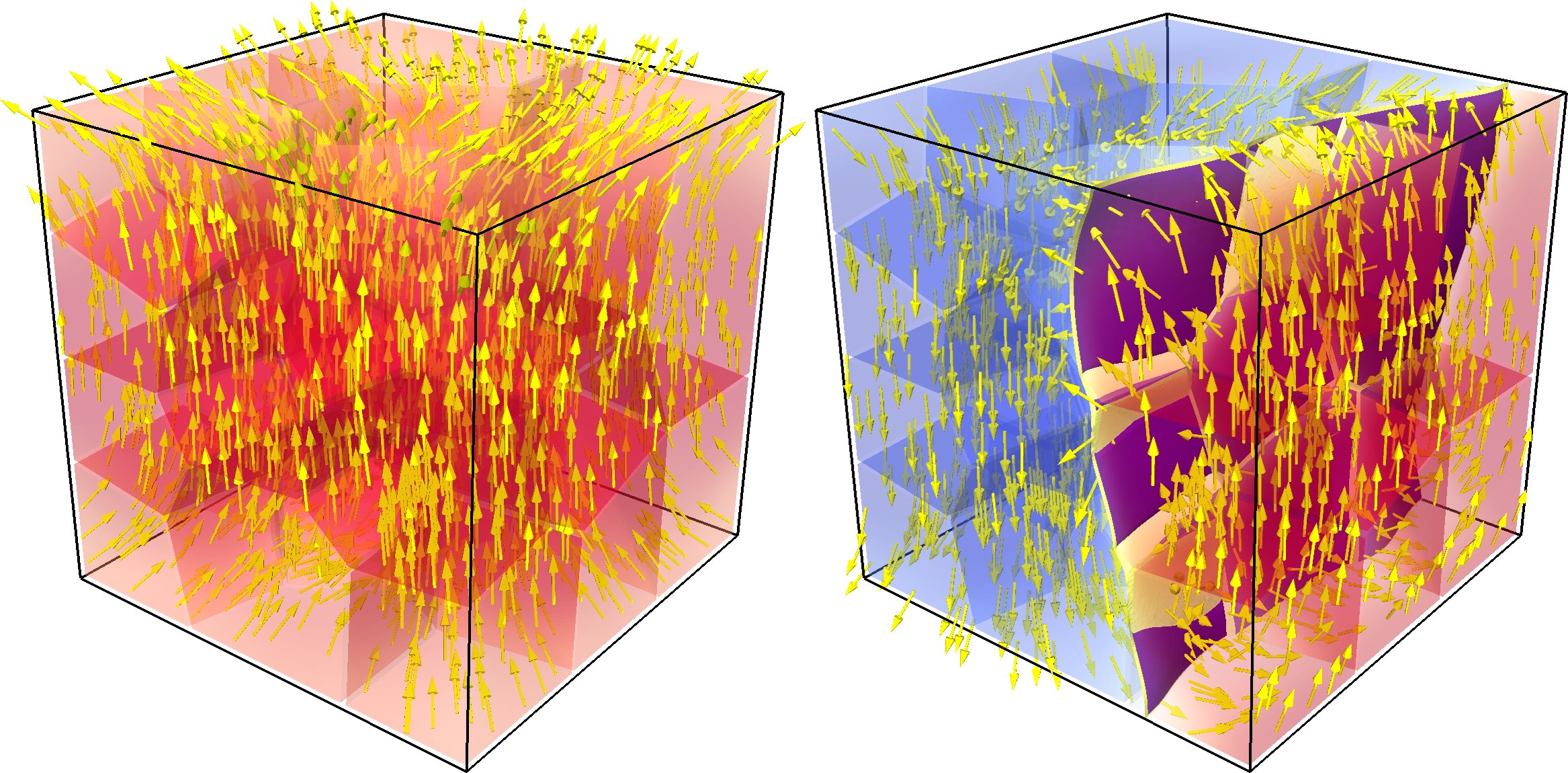The Center for Modelling and Simulation is leading an international EU project that aims to promote the development of magnets with the lowest possible proportion of rare earths by providing advanced tools. Together with partner institutions from France, Germany and Sweden, the Magnetic Multiscale Modeling Suite (MaMMoS) is being developed. This will be made available as open source and will later also serve as a cooperation platform.
Magnets are crucial for many of today’s technologies, from the generators in wind turbines and the motors that power electric vehicles, which help to reduce global heating, to computers, sensors and smartphones. Despite the huge importance of magnets, the rare earths they contain are scarce and difficult to mine and separate, so their production can cause serious environmental problems. In addition, 98 percent of these raw materials required in the EU need to be imported – an aspect which causes significant economic dependencies.
Now scientists from Austria, France, Germany and Sweden are joining forces with two major technology companies in a bid to develop more environmentally friendly magnets using sustainable materials. They are setting up an open-source software platform, an enormously powerful tool kit of advanced modelling programs, to simulate the behaviour of magnetic materials and tailor them to specific applications. The pioneering Magnetic Multiscale Modelling Suite (MaMMoS) will combine experiments, simulation, and artificial intelligence (AI) to identify and design innovative magnetic materials and optimise them for cutting-edge devices and sensors. The four-year project was launched in Wiener Neustadt, Austria, in January and is supported by € 6 million in funding from the European Union.
New magnets for the Green New Deal
“Greener permanent magnets are of the utmost importance in the race to meet the current climate challenges”, says project coordinator Thomas Schrefl, head of the Centre for Simulation and Modelling at the University for Continuing Education in Krems, Austria: “The MaMMoS project contributes to the EU Green New Deal by developing methods to minimize the use of critical raw materials in high-performance magnets, which are integral components of electric motors and generators.”
The other scientific project partners include the Max Planck Institute for the Structure and Dynamics of Matter (MPSD) in Hamburg, the Leibniz Institute for Solid State and Materials Research in Dresden (both located in Germany), Uppsala University in Sweden and the Centre National de la Recherche Scientifique (CNRS) in Grenoble, France. Two of Germany’s best-known global technology companies, Siemens AG and Robert Bosch GmbH, will contribute wide-ranging industrial expertise and R&D capabilities to the modelling suite.
Bundle of state of the art tools
Participating institutions specialize in the modelling, characterisation, or production of magnetic materials on different length scales. This wealth of simulation tools, characterisation methods and technical know-how will be pooled in MaMMoS, so that the software platform can support the modelling of a vast spectrum of promising materials. “We will make the MaMMoS multi-scale modelling framework available as open source on the internet”, explains Hans Fangohr, the project leader at the Hamburg-based MPSD. “Through this accessibility we maximise the potential benefits from the investment for all countries, industries and academia, and contribute to the much-needed green revolution.”
Ultimately, MaMMoS promises to make a major contribution to the development of novel magnetic materials and help to replace many rare earth-containing magnets. The data gathered through the various simulation and characterisation tools will underpin experiments and the project as a whole presents a significant step forward in magnetic research. Once fully established, MaMMoS will serve as a ground-breaking collaborative platform offering important technological solutions to build a more sustainable future where technology and environmental responsibility go hand in hand.
Magnetic Multiscale Modelling Suite (MaMMoS) – Project 101135546
Duration: 2024–2027
Funding: EU
Principle investigator for the project: Univ.-Doz. Dipl.-Ing. Dr. Thomas Schrefl
Project members: Claas Fillies, B.Sc.; Dipl.-Ing. Dr. Wilfried Hortschitz; Ulrike Lachner; Ing. Dr. Harald Özelt, MSc
Coordination: University for Continuing Education Krems, Department for Integrated Sensor Systems – Center for Modelling and Simulation
Partners:
Centre National de la Recherche Scientifique (CNRS) (France)
Leibniz Institute for Solid State and Materials Research Dresden (Germany)
Max Planck Institute for the Structure and Dynamics of Matter (MPSD) (Germany)
Robert Bosch GmbH (Germany)
Siemens AG (Germany)
Uppsala University (Sweden)

Disclaimer
Funded by the European Union. Views and opinions expressed are however those of the author(s) only and do not necessarily reflect those of the European Union or European Health and Digital Executive Agency (HADEA). Neither the European Union nor the granting authority can be held responsible for them.
Contact
Tags

